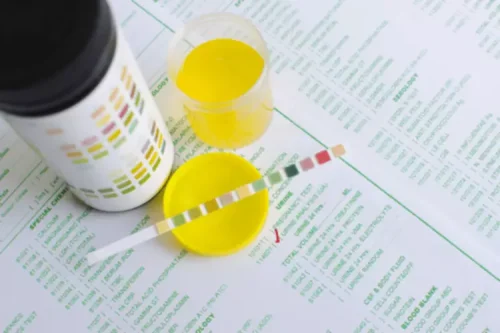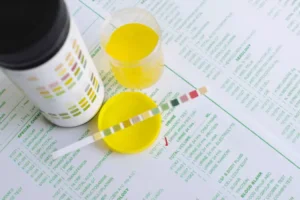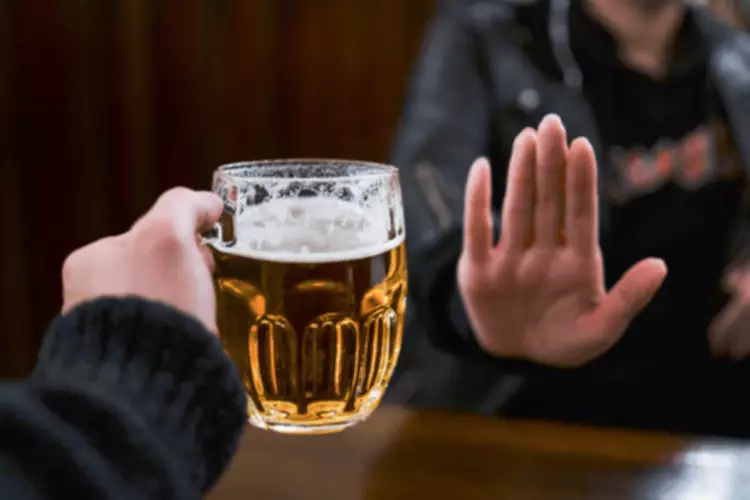
Only 4% of all Americans with an alcohol use what is alcoholism disorder were given any form of medication approved by the U.S. 87% of all Americans with an alcohol use disorder will have at least one relapse, slip and relapse during their first five years of recovery. 25% of all Americans with an alcohol use disorder will be more likely to have a relapse because they live too far away from an alcohol treatment facility. 22% of all Americans with an alcohol use disorder will have a relapse if they live more than an hour’s drive from an alcohol treatment center. 36% of Americans who are suffering from alcohol use disorder are going to recover after one year of treatment by a professional.
The 6 Stages of Mental Health Recovery
We also focused on individuals who had already recognized their alcohol-related problems and initiated a search for help. Accordingly, our findings on lower remission and higher relapse rates among individuals who do not obtain help quickly may not generalize to individuals who have alcohol-related problems but have not sought help. These individuals may have less severe problems and/or more personal and social resources that can help them initiate and sustain natural recovery. Among individuals who stay sober for five years, the risk of relapse drops to below 15%, according to Psychology Today. While the chance of staying sober increases with time, it’s important to note that recovery is a lifelong process and that vigilance is essential to avoid setbacks. This pattern demonstrates that the longer someone remains sober, the less likely they are to relapse, with 70% of individuals struggling with alcohol addiction eventually relapsing at some point.
- This behavior reflects a growing trend toward heavy and episodic drinking, particularly among younger adults.
- With social, legal, health and economic problems related to the overconsumption of alcohol, it’s important to understand alcohol abuse facts and identify when use becomes abuse.
- Furthermore, many treatment centers and facilities offer alumni programs that allow program graduates to stay involved.
Relapse Prevention Strategies
The Grove Editorial Team is committed to educating, supporting, and empowering individuals and families on their journey toward a alcohol relapse statistics healthier, substance-free life. Recognizing these predictors can help professionals and individuals struggling with alcoholism identify potential risks and develop effective relapse prevention strategies. Alcohol rehab is designed to help people experiencing alcohol addiction learn the necessary coping skills and triggers to take control of their disorder. The longer someone stays in a recovery program, the lower their risk for relapse is. In addition, we examined interactions between the help status and relapse status groups.
Personalized Mental Health & Addiction Care in Indianapolis
Finding the right facility for you involves the inclusion of a physician, therapist, or other healthcare provider to help you choose a facility to address all of your needs, including addiction and co-occurring disorders. Beyond that, you may narrow the field based on location, additional services, amenities, and accreditations and certifications. Furthermore, many treatment centers and facilities offer alumni programs that allow program graduates to stay involved. Alumni programs provide accountability and let individuals remain as part of the supportive recovery community.
Stress, Negative Life Events, and Coping
However, many people successfully maintain long-term recovery with proper support. Most common reasons cited for relapse in both the groups was desire for positive mood Table 4, followed by sleep difficulties and negative affect in alcohol dependence and craving and sleep difficulties in opioid dependence. Emotional state contributed to a relapse precipitant in 76%–80% of the subjects in both the groups. The Grove Editorial Team is a dynamic group of professionals at The Grove, a leading addiction treatment center in Indianapolis, Indiana. Comprising experienced therapists, medical experts, and dedicated support staff, this team brings a wealth of knowledge and compassionate insight into the complexities of addiction and recovery. Their collective expertise shines through in each article, offering readers valuable guidance, the latest in addiction science, and inspiring stories of healing and transformation.
- Medications are also available to help treat addiction to alcohol and nicotine.
- Approximately 85.6% of people over age 18 have sampled alcohol at least once, and around 25.8% of adults reported engaging in binge drinking within 30 days of the survey, according to a National Survey on Drug Use and Health.
- The Recovery Village aims to improve the quality of life for people struggling with a substance use or mental health disorder with fact-based content about the nature of behavioral health conditions, treatment options and their related outcomes.
- If you or someone you know is experiencing challenges with alcohol, don’t wait to seek help.
- In conclusion, it is well-known that addictions are chronic, relapsing illnesses, but systematic study to identify biological markers of addiction relapse risk has been rare.
- Compared to individuals who remitted with help, those who remitted without help tend to be more socially stable and to have had fewer life-time drinking problems 18,19.
After Rehab, What Does Recovery Look Like?
The study findings echo the literature that describes relapse as a complex multifactorial phenomenon. Although there were differences in presentation, similar pathways and mechanisms of relapse were seen in alcohol and opioid dependence, albeit with some differences. Hence, we decided to undertake the study to compare the correlates of relapse in alcohol and opioid dependence. The primary goal of this study was to compare the correlates of relapse in alcohol dependence and opioid dependence while assessing reasons for relapse in both the groups.


If you’ve experienced an extended relapse, you’ll likely benefit frommedical detox, where any withdrawal symptoms are managed under medical supervision. Once your doctors in detox have made a full assessment of your condition, they will be able to recommend whether or not they think you would benefit from going back to rehab. Likewise, if you have not previously completedalcohol rehabafter alcohol detox, you should consider this as a way toincrease your chances of long-term sobriety. The impacts of alcohol abuse are seen in staggering statistics on alcohol-related health conditions, injuries and fatalities.
- Naltrexone demonstrated better outcomes regarding time to first drink and relapse compared to acamprosate in clinical trials.
- Similarly, substance abusers report significantly higher levels of drug-related and drug cue–related craving and attentional bias than healthy controls 21–24.
- These programs help alcoholics stay accountable, restore relationships, and maintain sobriety.
- Disparity in sociodemographic factors was seen in both the groups with opioid group being more likely to be single, unemployed, belonging to lower socioeconomic status, and having a criminal record.
What Percentage of Patients Relapse After Their First Year?

The best alcohol rehab programs help establish a strong foundation for long-term sobriety. These treatments target alcohol abuse and the underlying causes and offer strategies to prevent relapse after alcohol detox and alcohol withdrawal. The Center also reports that alcohol poisoning causes over 2,200 deaths annually in the United States. In addition to the increased risk of mortality, chronic alcohol abuse also contributes to rates of liver cirrhosis, digestive disorders and various cancers. Learn about how consumption patterns and demographic information surrounding alcohol abuse might be able to give you a look at how it’s affecting your community, family and friends. Let’s take a closer look at alcohol abuse trends, related statistics and the broader effects on public health.

Whether you are struggling with addiction, mental health or both, our expert team is here to guide you every step of the way. Don’t wait— reach out today to take the first step toward taking control of your life. However, it takes work to stay in recovery, and even the hardest-working person can experience slips, lapses and relapses during the alcohol recovery process.
Craving
However, just because a relapse occurs doesn’t mean someone has failed recovery. Relapse can be part of the recovery process, and it can strengthen someone’s dedication to long-term sobriety if it occurs and is properly handled. Returning to rehab after an alcohol relapse may seem disheartening, but seeking treatment can open the doors to hope and healing. If you or a loved one has relapsed—or you’re simply ready to learn more about your options—AAC can help. Most people assume that an alcohol relapse starts the minute someone starts drinking again. However, studies suggest that relapse happens gradually and typically progresses through 3 stages.